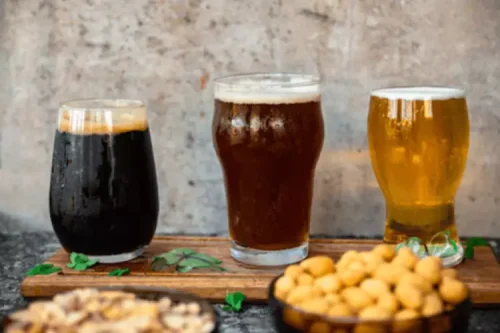
Hypoglycemia shows abnormally low levels of glucose in the blood, which interfere with the function of organ system. The two most common forms of DM are type 1 (T1DM) and type 2 diabetes, with T1DM accounting for approximately 10% of all cases in Caucasians 18. In contrast to the limited data available on alcohol-induced changes in glucose uptake for most peripheral tissues, there is a considerable body of literature pertaining to glucose uptake by whole brain and by various brain regions.

Risks of Alcohol in Type 2 Diabetes
Moreover, alcohol dependence was one of the concomitant factors in subjects with impaired glucose tolerance that are diagnosed with performing standard 75 g oral glucose tolerance test. This suggests that alcohol might impair fasting and postprandial glycemic controls and thus, alcohol consumption may be a risk factor for T2DM 15. Extensive studies using animal models of chronic alcohol intake have provided insight into the possible mechanisms, which contributes to the development of diabetes. Previously, our study demonstrated that chronic heavy drinking aggravates T2DM. In this study, diabetic rats with chronic alcohol consumption showed lower fasting plasma glucose level, but significantly higher postprandial plasma glucose level that was difficult to return to baseline levels than the non-drinking diabetic rats. On the other hand, this effect diabetes and alcohol of ethanol on glucose levels was not observed in the non-diabetic rats, which indicate that the diabetic state appears to be more susceptible to heavy alcohol ingestion than those in the non-diabetic state 16.
- The two most common forms of diabetes are type 1 and type 2 diabetes, with type 2 diabetes accounting for at least 90 percent of all cases.
- This potentially beneficial effect was observed in both men and women, regardless of age.
- In people with either type 1 or type 2 diabetes, single episodes of alcohol consumption (i.e., acute alcohol consumption) generally do not lead to clinically significant changes in blood sugar levels.
- Skeletal muscle represents the largest body depot responsible for IMGU 130,131.
- This work is relevant as the contribution of alcohol intake to the development or exacerbation of type 2 diabetes remains ill-defined and a multi-systems approach is likely needed as both alcohol and diabetes affect multiple targets within the body.
Foods to Avoid When You Have Type 2 Diabetes
- Your body uses the food for energy since the liver is breaking down alcohol.
- But while White people are more at risk over the age of 40, people of South Asian, African-Carribean, or Black African descent are more at risk from the age of 25 and at lower levels of overweight.
- But even those who have type 2 diabetes who take medication may be vulnerable to hypoglycemia unawareness, even though their blood sugar levels are more likely to skew high than low.
- Don’t use dangerous equipment, or engage in activities that require coordination, concentration, or alertness.
- They show the amount of carbs and sugar in different alcoholic beverages.
- In further support, an alcohol-induced decrease in insulin-stimulated glucose disposal by skeletal muscle has been consistently detected in rats using radiolabeled 2-DG 12,14,117,118.
Hence, in this experimental paradigm, hepatic insulin resistance is manifested as a decrease in insulin-induced suppression of endogenous HGP. Although acute alcohol did not produce hepatic insulin resistance in humans 115, rodents consistently exhibit impaired hepatic insulin sensitivity following both acute and chronic alcohol ingestion 14,28,120,122. Hypertriglyceridemia is an important risk factor for cardiovascular diseases.
- If you have one or more drinks a day, you may find that your A1C is lower than during times you weren’t drinking.
- If you’re living with diabetes, talk to your doctor about how alcohol may impact your condition management plan, even if you only have an occasional alcoholic beverage.
- For people with diabetes, drinking alcohol can cause low or high blood sugar, affect diabetes medicines, and cause other possible problems.
- Chronic excessive alcohol consumption alone can also cause nerve damage called alcoholic neuropathy.
- The symptoms of intoxication and low blood sugar can be similar (slurred speech, dizziness, lack of coordination, or even a loss of consciousness), so it’s helpful to have someone in the group who understands the difference.
- It’s important to eat before you drink, test your blood sugar regularly, and wear identification if you have diabetes.
1.3. Impaired Glucose Tolerance

Whether you have type 1 or type 2 diabetes, it’s important to count your carbs and monitor your blood sugar while drinking. Remember, hard alcohol by itself has zero carbs and will not raise your blood sugar but still can put you at risk for low blood sugar that can occur hours after hard liquor ingestion. This is why it’s especially important for your friends and family to know the risks of drinking alcohol with diabetes and the signs of low blood sugar.
Alterations of Lipid Metabolism
- Hence, while alcohol appears to inhibit insulin secretion in vitro, its effects under in vivo conditions are more variable and may be model- and/or species-dependent.
- While moderate alcohol consumption lowers blood sugar, heavy consumption is harmful to diabetes and other aspects of health.
- Choose foods that contain carbohydrates so that you have some glucose in your system (meaning, you will be at lower risk of having low blood sugar).
These studies demonstrated the diabetes-related lipid abnormalities, by insulin sensitivity, mediated oxidative stress and the altered metabolism has been shown to have a deleterious effects after heavy drinking, an effect mediated by insulin. In people with either type 1 or type 2 diabetes, single episodes of alcohol consumption (i.e., acute alcohol consumption) generally do not lead to clinically significant changes in blood sugar levels. In fact, some studies have indicated that isolated episodes of drinking with a meal may have a beneficial effect by slightly lowering blood sugar levels that tend to rise too drug addiction high in diabetics (Swade and Emanuele 1997). This potentially beneficial effect was observed in both men and women, regardless of age.

Glycaemic index of alcoholic drinks
Drinking alcohol can lead to serious low blood sugar reactions, especially if you take insulin or types of diabetes pills that stimulate the release of insulin from the pancreas. Alcohol can also affect other medical conditions you may have, like diabetic nerve damage, diabetic eye disease, and high blood triglycerides. While many people with diabetes can drink alcohol in moderation, it’s important to understand the possible risks of alcohol use and what you can do to lower them. You should also talk with your health care provider to see if it is safe for you to drink. The combination of alcohol and diabetes can change the way the body processes glucose and can make someone more sensitive to their insulin. Depending on the amount and type of sugar in the drink, hyperglycemia https://ecosoberhouse.com/ (high glucose levels) can also occur as well.


Leave A Comment